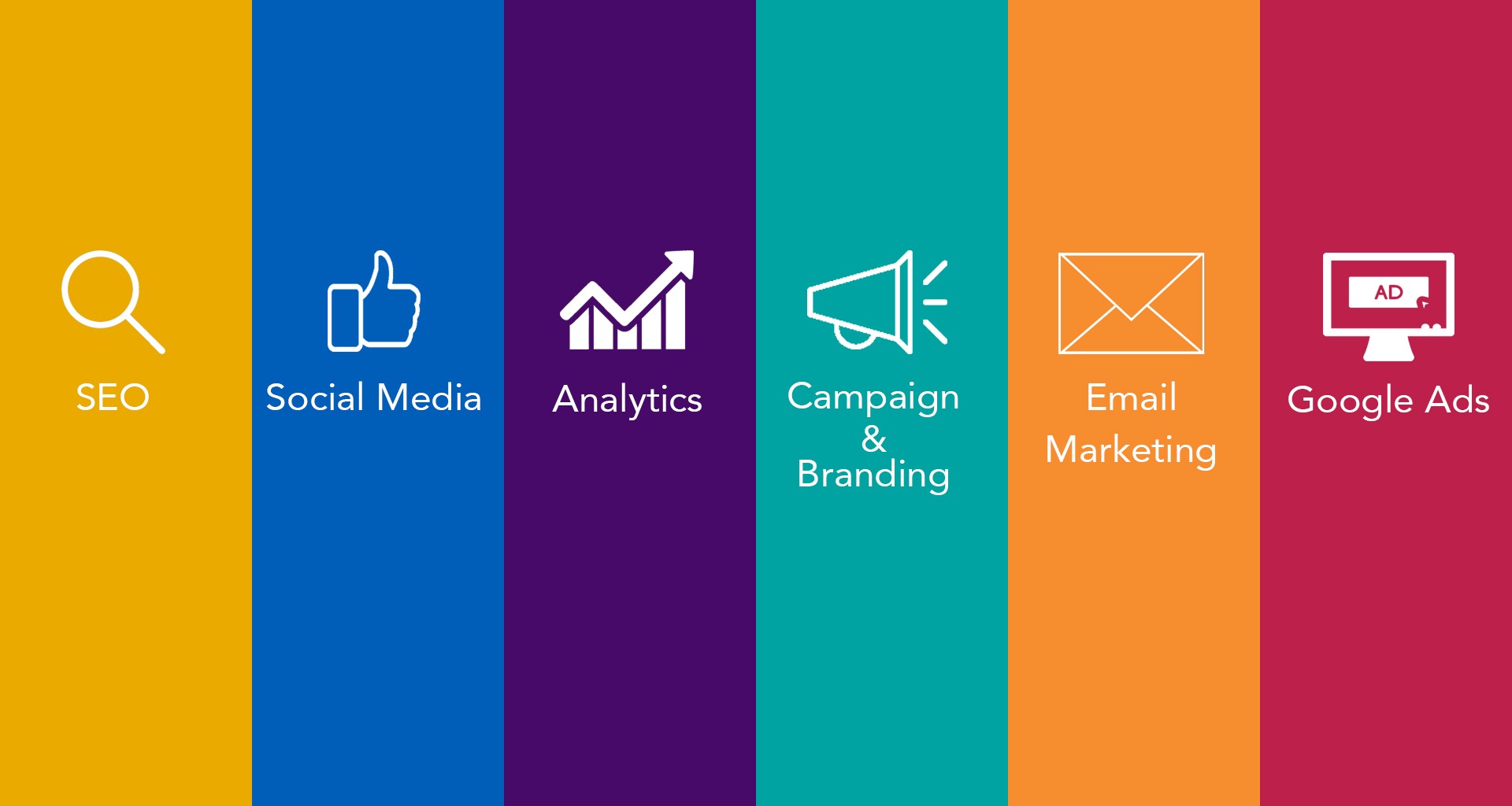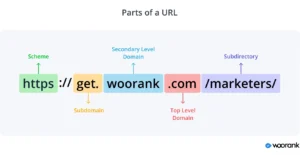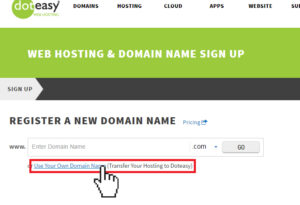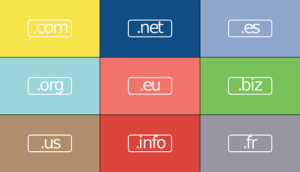Digital marketing has become a crucial component of any successful business strategy in today’s digital age. Whether you’re a small startup or a multinational corporation, understanding the main pillars of digital marketing is essential for reaching and engaging with your target audience. So, what are these pillars that form the foundation of digital marketing? Let’s dive in and explore the key elements that drive online success.
First and foremost, the pillar of search engine optimization (SEO) stands tall. SEO is all about optimizing your website and content to rank higher on search engine results pages (SERPs). By incorporating relevant keywords, creating valuable and shareable content, and implementing effective backlink strategies, you can drive organic traffic to your website and increase your online visibility. With the right SEO practices, you can outshine your competitors and attract more potential customers to your digital doorstep. But SEO is just the beginning.
Another pillar of digital marketing is social media marketing. Social media platforms have revolutionized the way businesses connect with their audience. From Facebook to Instagram, Twitter to LinkedIn, these platforms offer a direct line of communication between brands and their customers. By creating compelling content, engaging with followers, and leveraging the power of influencers, businesses can build strong relationships and foster brand loyalty. Social media marketing allows you to showcase your products or services, share valuable insights, and tap into the vast online community. With the right social media strategy, you can make your brand the talk of the digital town.
In conclusion, the main pillars of digital marketing include search engine optimization (SEO) and social media marketing. By mastering these key elements, businesses can enhance their online presence, attract more customers, and stay ahead of the competition. So, whether you’re a digital marketing novice or a seasoned pro, investing in these pillars will help you navigate the ever-evolving digital landscape and achieve long-term success. Get ready to climb the ladder of online prominence and make your mark in the digital realm.
Digital marketing is built on several main pillars that form the foundation of a successful online strategy. These pillars include:
- Search Engine Optimization (SEO): Optimizing your website to rank higher in search engine results and increase organic traffic.
- Content Marketing: Creating and distributing valuable content to attract and engage your target audience.
- Social Media Marketing: Utilizing social media platforms to promote your brand, engage with customers, and drive website traffic.
- Email Marketing: Building and nurturing relationships with your audience through targeted email campaigns.
- Pay-Per-Click Advertising (PPC): Running paid ads to drive immediate traffic and conversions.
- Analytics and Data: Collecting and analyzing data to measure the effectiveness of your marketing efforts and make data-driven decisions.
What Are the Main Pillars of Digital Marketing?
Digital marketing is an essential aspect of modern business strategies, allowing companies to reach a wider audience and grow their brand presence online. But what are the main pillars of digital marketing that drive successful campaigns? In this article, we will explore the key elements that form the foundation of any effective digital marketing strategy.
1. Search Engine Optimization (SEO)
Search engine optimization, or SEO, is the process of optimizing a website to improve its visibility and ranking on search engine results pages. By optimizing various elements such as keywords, meta tags, and content structure, businesses can increase their organic search traffic and attract more potential customers. SEO involves both on-page and off-page optimization techniques, including keyword research, link building, and user experience optimization.
Effective SEO starts with thorough keyword research to identify the terms and phrases that your target audience is searching for. By incorporating these keywords strategically throughout your website’s content, you can increase your chances of appearing higher in search engine rankings. Additionally, optimizing your website’s loading speed, mobile responsiveness, and overall user experience can contribute to improved SEO performance.
Benefits of SEO
Implementing a solid SEO strategy offers numerous benefits for businesses. Firstly, it helps increase organic traffic to your website, allowing you to reach a larger audience without relying solely on paid advertising. Additionally, SEO can enhance your brand’s credibility and authority in the eyes of search engines, leading to higher rankings and increased visibility. By targeting specific keywords and optimizing your content, you can attract more qualified leads and boost conversion rates.
However, it’s important to note that SEO is an ongoing process that requires continuous monitoring and adjustments. Search engine algorithms frequently change, and staying up to date with the latest best practices is crucial for maintaining and improving your website’s ranking.
2. Content Marketing
Content marketing involves creating and distributing valuable and relevant content to attract and engage your target audience. This pillar of digital marketing focuses on providing informative, entertaining, or educational content to your audience, rather than directly promoting your products or services. By offering valuable content, businesses can build trust, establish their expertise, and nurture long-term relationships with their customers.
Creating high-quality content starts with understanding your target audience and their needs. Conducting thorough research allows you to identify the topics and formats that resonate with your potential customers. Whether it’s blog posts, videos, infographics, or podcasts, tailoring your content to your audience’s preferences is key to maximizing its impact.
The Power of Content Marketing
Content marketing has the power to attract, engage, and convert customers. By consistently delivering valuable content, you can position your brand as a thought leader in your industry and build a community of loyal followers. Content marketing also plays a vital role in SEO, as search engines value informative and relevant content. By incorporating targeted keywords and providing answers to common questions, you increase your chances of ranking higher in search results.
3. Social Media Marketing
Social media marketing leverages popular social media platforms to connect with your target audience, build brand awareness, and drive engagement. With billions of people around the world using social media daily, platforms like Facebook, Instagram, Twitter, and LinkedIn offer immense opportunities for businesses to reach and connect with their customers.
A successful social media marketing strategy involves understanding your target audience’s preferences, behaviors, and demographics. By creating compelling and shareable content, engaging with your followers, and running targeted advertising campaigns, you can effectively reach and influence your audience on social media.
The Advantages of Social Media Marketing
Social media marketing offers several advantages for businesses. It allows you to build a strong online presence, increase brand awareness, and connect with your audience on a more personal level. Social media platforms also provide valuable insights and analytics, allowing you to measure the effectiveness of your campaigns and make data-driven decisions. Additionally, social media advertising enables precise targeting, ensuring that your messages reach the right people at the right time.
Overall, social media marketing is a powerful tool for businesses to build relationships, foster brand loyalty, and drive traffic to their website or physical locations.
4. Email Marketing
Email marketing involves sending targeted and personalized messages to your subscribers’ inboxes. It is a highly effective channel for nurturing leads, promoting products or services, and staying connected with your audience. With the ability to reach individuals directly and tailor messages based on their preferences and behaviors, email marketing remains a cornerstone of successful digital marketing strategies.
To effectively leverage email marketing, it’s crucial to build a quality subscriber list and segment your audience based on their interests and engagement levels. Personalizing your emails and providing valuable content can increase open rates, click-through rates, and conversions. Additionally, monitoring and analyzing your email campaign metrics allow you to refine your strategies and optimize your results.
The Impact of Email Marketing
Email marketing offers a high return on investment (ROI) for businesses. It allows you to nurture leads and guide them through the sales funnel, ultimately increasing conversion rates. By delivering personalized and relevant content directly to your subscribers’ inboxes, you can maintain a strong connection with your audience and encourage repeat business. Additionally, email marketing enables you to track engagement metrics and gain valuable insights into your customers’ preferences and behaviors.
In conclusion, the main pillars of digital marketing – SEO, content marketing, social media marketing, and email marketing – form a comprehensive strategy for businesses to reach, engage, and convert their target audience. By leveraging these pillars effectively, companies can enhance their online presence, build brand loyalty, and drive long-term success in the digital landscape.
Key Takeaways: What Are the Main Pillars of Digital Marketing?
- Digital marketing is the promotion of products or services using digital technologies.
- The main pillars of digital marketing include search engine optimization (SEO), social media marketing, content marketing, email marketing, and paid advertising.
- SEO focuses on improving a website’s visibility in search engine results.
- Social media marketing involves promoting products or services on social media platforms like Facebook, Instagram, and Twitter.
- Content marketing focuses on creating and sharing valuable content to attract and engage audiences.
Frequently Asked Questions
What are the main pillars of digital marketing?
Digital marketing is a vast field that encompasses various strategies and techniques. There are several main pillars that form the foundation of digital marketing:
1. Search Engine Optimization (SEO): SEO involves optimizing your website and content to rank higher on search engine results pages. It includes keyword research, on-page optimization, link building, and other techniques to improve visibility and organic traffic.
2. Content Marketing: Content marketing focuses on creating valuable and relevant content to attract and engage your target audience. It includes blog posts, articles, videos, infographics, and more to establish your brand as an authority and drive conversions.
3. Social Media Marketing: Social media platforms offer a vast audience to connect with and promote your brand. It involves creating and sharing content on platforms like Facebook, Instagram, Twitter, and LinkedIn to increase brand awareness, engagement, and lead generation.
4. Pay-Per-Click (PPC) Advertising: PPC advertising allows you to place ads on search engines and other platforms and pay when users click on them. It includes platforms like Google Ads, Facebook Ads, and Bing Ads, enabling targeted advertising and immediate results.
5. Email Marketing: Email marketing involves sending targeted emails to nurture leads, build relationships, and drive conversions. It focuses on delivering personalized and relevant content to subscribers, helping to increase engagement and customer loyalty.
How does search engine optimization (SEO) contribute to digital marketing?
Search engine optimization (SEO) plays a crucial role in digital marketing by improving the visibility and ranking of your website on search engine results pages. Here’s how SEO contributes to digital marketing:
1. Increased Organic Traffic: By optimizing your website and content for relevant keywords, SEO helps increase organic traffic from search engines. This can result in higher visibility, more website visitors, and better brand exposure.
2. Enhanced User Experience: SEO involves improving various aspects of your website, such as site speed, mobile-friendliness, and user navigation. These enhancements contribute to a better user experience, leading to higher engagement and increased conversions.
3. Authority and Credibility: When your website ranks higher on search engine results pages, it gives your brand a sense of authority and credibility. Users tend to trust websites that appear at the top, which can positively impact your brand reputation.
4. Targeted Traffic: SEO allows you to target specific keywords and demographics, ensuring that your website attracts relevant traffic. By reaching the right audience, you have a higher chance of converting leads into customers and achieving a higher return on investment.
5. Long-Term Results: Unlike paid advertising, which stops generating traffic once the budget runs out, SEO can provide long-term results. By consistently implementing SEO strategies, you can maintain and improve your website’s visibility over time.
What is the importance of content marketing in digital marketing?
Content marketing is a crucial aspect of digital marketing due to the following reasons:
1. Establishing Brand Authority: By consistently creating valuable and relevant content, you position your brand as an authority in your industry. This helps build trust with your target audience and enhances your brand’s reputation.
2. Driving Organic Traffic: High-quality content optimized for relevant keywords can improve your website’s visibility on search engine results pages. This can lead to increased organic traffic and a higher chance of attracting potential customers.
3. Engaging and Educating Customers: Content marketing allows you to engage your target audience by providing them with valuable information and insights. By educating your customers through blogs, articles, videos, and more, you can build a loyal customer base.
4. Supporting Other Marketing Channels: Content can be repurposed and shared across various marketing channels, including social media, email marketing, and PPC advertising. It acts as a foundation for other marketing efforts, enhancing their effectiveness.
5. Building Customer Relationships: Through content marketing, you can establish a direct line of communication with your audience. By encouraging interactions, such as comments and social media shares, you can build meaningful relationships and boost customer loyalty.
How does social media marketing contribute to digital marketing?
Social media marketing is an integral part of digital marketing that offers numerous benefits:
1. Increased Brand Awareness: Social media platforms provide a vast audience to promote your brand and reach potential customers. By creating engaging content and building a strong online presence, you can increase brand awareness and visibility.
2. Targeted Advertising: Social media platforms offer advanced targeting options, allowing you to reach specific demographics and interests. This enables you to tailor your ads to the right audience, increasing the chances of conversions and maximizing your advertising budget.
3. Customer Engagement: Social media platforms provide an interactive space for direct communication with your audience. By responding to comments, messages, and reviews, you can build relationships, address concerns, and provide excellent customer service.
4. Influencer Marketing: Social media platforms are home to influencers who have a significant impact on their followers’ buying decisions. Partnering with influencers relevant to your industry can help expand your reach and gain credibility among their followers.
5. Analytics and Insights: Social media platforms provide valuable analytics and insights into your audience’s behavior, preferences, and engagement. This data can help you refine your marketing strategies, target the right audience, and measure the success of your social media campaigns.
What is the role of email marketing in digital marketing?
Email marketing plays a vital role in digital marketing and offers several benefits:
1. Lead Nurturing: Email marketing allows you to nurture leads by sending targeted and personalized emails to your subscribers. By providing relevant content, promotions, and updates, you can guide leads through the sales funnel and increase the chances of conversion.
2. Customer Retention: Email marketing helps you stay connected with your existing customers and encourage repeat purchases. By sending exclusive offers, loyalty rewards, and personalized recommendations, you can strengthen customer relationships and increase customer lifetime value.
3. Automation and Personalization: Email marketing platforms offer automation features that allow you to send targeted emails based on user behavior and preferences. This helps deliver personalized content and offers, enhancing the user experience and driving engagement.
4. Cost-Effective Marketing: Compared to traditional marketing channels, email marketing is cost-effective and has a high return on investment. It eliminates printing and postage costs, allowing you to reach a large audience at a fraction of the cost.
5. Measurable Results: Email marketing provides detailed analytics and performance metrics, allowing you to track the success of your campaigns. You can monitor open rates, click-through rates, conversions, and other key metrics to optimize your email marketing strategy and improve results.
Understand The Pillars Of Digital Marketing
Final Thoughts on the Main Pillars of Digital Marketing
And there you have it, the main pillars of digital marketing demystified! We’ve explored the key components that make up this ever-evolving landscape, and it’s clear that a successful digital marketing strategy relies on a combination of these pillars working harmoniously. From SEO to social media, content marketing to data analytics, each pillar plays a vital role in reaching and engaging your target audience online.
But remember, digital marketing is not a one-size-fits-all approach. It’s important to tailor your strategy to your specific business goals and target audience. Don’t be afraid to experiment and adapt as needed, keeping a close eye on the latest trends and innovations in the digital realm. With the right mix of these pillars and a little creativity, you’ll be well on your way to achieving digital marketing success.
So, whether you’re a seasoned digital marketer or just starting out on your journey, keep these pillars in mind as your guiding principles. Embrace the power of search engine optimization, leverage the reach of social media, create compelling content, harness the insights from data analytics, and always stay ahead of the curve. By doing so, you’ll be able to navigate the ever-changing digital landscape and drive meaningful results for your business.
Remember, digital marketing is not a sprint, it’s a marathon. Stay persistent, stay curious, and keep pushing the boundaries of what’s possible. With these pillars as your foundation, the digital world is your oyster. So go forth, conquer the online realm, and watch your business thrive in the digital age!








